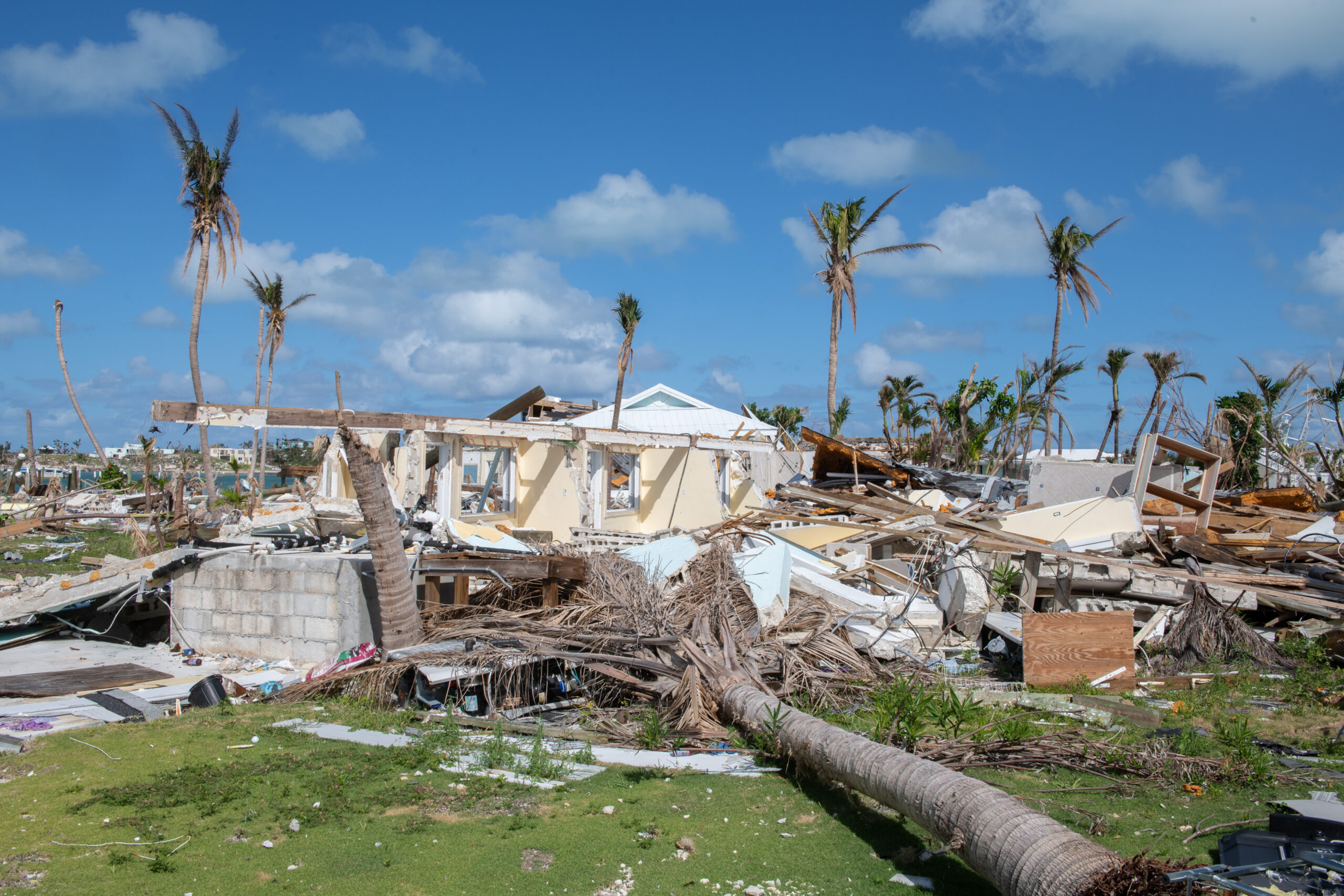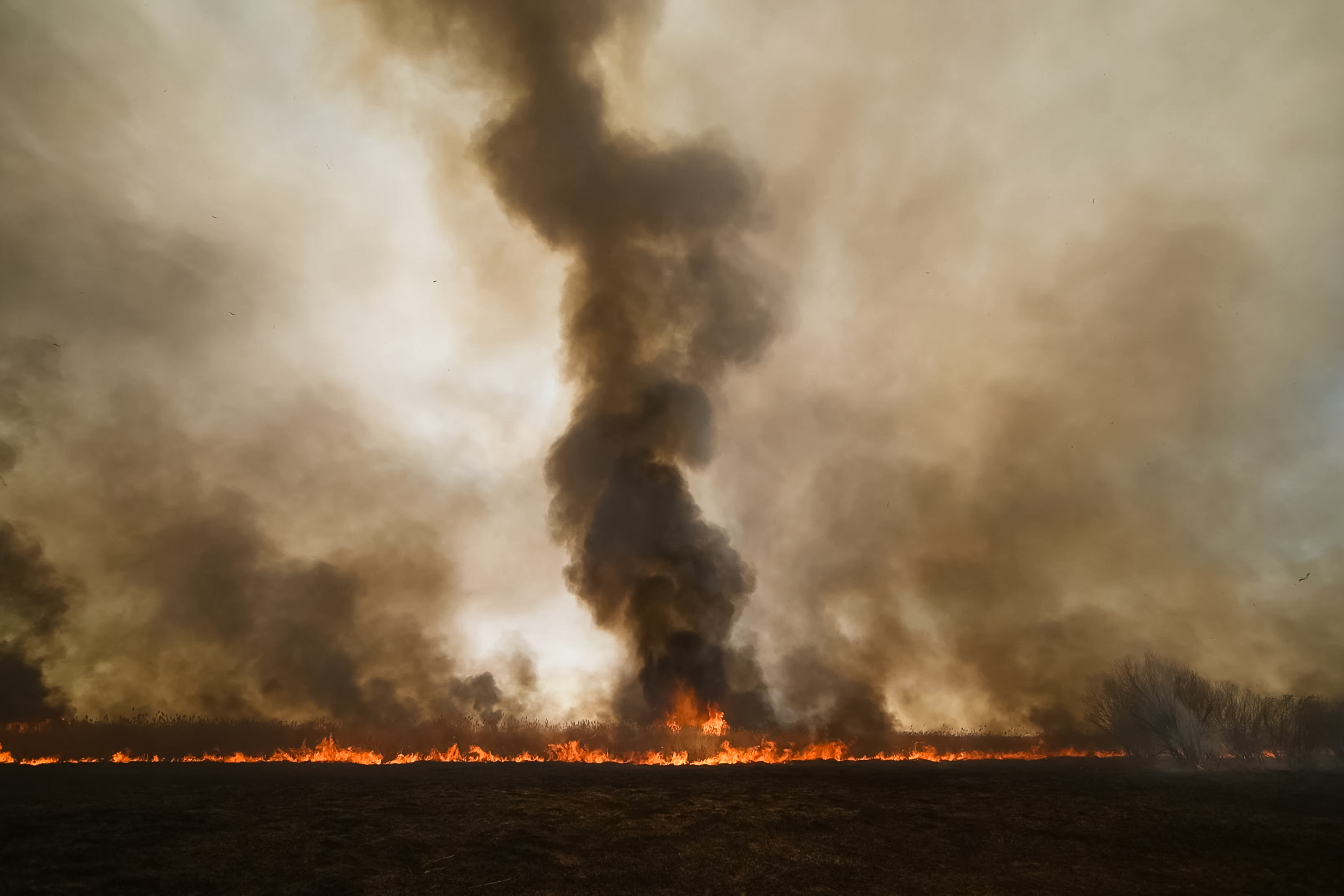How two Caribbean broadcasters covered Hurricane Beryl
26th August 2024
A historic start to the hurricane season highlighted how Caribbean broadcasters are leveraging their preparedness, collaborative efforts, and community trust to ensure timely and accurate information.

In late June, Hurricane Beryl emerged as a significant climate event and quickly escalated from a tropical depression to a major hurricane, becoming the earliest Category 4 Atlantic hurricane on record and the earliest to reach Category 5. The hurricane’s impact on the Caribbean was significant, with severe devastation in Grenada and St. Vincent and the Grenadines and destruction in Barbados and Jamaica.
“Planning with resilience”
During moments of climate disasters, public interest media organisations have a responsibility to provide timely and accurate information to audiences. For Caribbean broadcasters like STARCOM Network, who operate in one of the world’s most vulnerable regions to extreme weather events, the role of public interest media during times of crisis is well-recognised, and comes with the responsibility of being well prepared.
Even before Hurricane Beryl’s formation, STARCOM was laying the groundwork for its response. According to Anthony Greene, General Manager of the Barbados-based STARCOM Network, the broadcaster activated the five phases as guided by the Hurricane Procedures in its Business Continuity Plan, and made specific adjustments to programming and content strategy for the period. Its radio stations’ formats were also suspended; instead, there was the broadcasting of a hurricane watch programme across all four stations, led by its flagship platform VOB 92.9 FM and anchored by hurricane watch broadcast and support teams.
Meanwhile, STARCOM disseminated critical information to the public via both its traditional and online platforms – there was terrestrial broadcasting on its four radio stations VOB 92.9 FM, HOTT 95.3 FM, Life 97.5 FM and The Beat 104.1 FM and online with streaming on its website and radio station apps. The broadcaster also made use of its social media platforms, and placed priority on audience engagement by taking calls and sharing feedback via social media with real time updates on how people across the country were impacted by the hurricane.
Greene stressed that accuracy and timeliness are among the broadcaster’s objectives during times of disasters, and there was a reliance on newsroom personnel. These personnel were a critical part of the hurricane watch broadcast team and were stationed at STARCOM and at the Department of Emergency Management (DEM).
“Planning with resilience as a priority is key,” Greene said. “In recognising our role as first responders in times of disaster, we are duty-bound to be an example of resilience and to encourage others to do the same given the influence that we carry as media and understanding that people will be depending on us. It is therefore important that we stay on air and that our audiences have access to our coverage.”
Being well-prepared also meant putting contingencies in place for potential operational challenges, such as power outages. In STARCOM’s case, Greene said that while there were power outages, the broadcaster was prepared with seamlessly operating back-up power systems at its various locations.
“The length of our broadcast and the period between the passage of the system and the all-clear tested our continuity plans specific to programming and coverage immediately following the hurricane. All personnel on standby to continue the coverage were available both remotely and on-site and contributed to a successful and consistent broadcast,” he said. “Our role as first responders is something we reflect on as pivotal to informing the public of the impacts of the hurricane, maintaining calm, encouraging the people to act responsibly, and facilitating aid to those who have been negatively affected.”

“Doing well by doing good”
Similarly, RJRGLEANER Communications Group, based in Jamaica, sees itself as a critical facilitator of aid during times of disasters. Building upon the goodwill in the society, RJRGLEANER has developed a reputation for not only giving back to impacted communities but also facilitating aid from the public to victims. In the case of Hurricane Beryl, RJRGLEANER provided aid, including hot meals and relief supplies, to the country’s three hardest-hit parishes.
Because we have a track record of actually delivering and showing transparency by presenting for the whole country what we are doing and how donations are utilised, we find that it helps in building and maintaining trust.
“One of the slogans in terms of corporate affairs is doing well by doing good […] Some of the reporting that we saw from our correspondents in those areas show people in shelters, people in need, people trying to get back but having nowhere to go. […] So we said the immediate need is to get food and water to people because those are the first basic needs that you try and meet,” explained Gary Allen the Group Senior Executive within Corporate and External Affairs at RJRGLEANER Communications Group.
RJRGLEANER’s work with the public during such emergencies is predicated on two important values: transparency and trust. For the broadcaster, these values go together and have been built upon over the decades, dating back to the Eventide Home fire in 1980 and later to other local tragedies and regional disasters, such as the devastating 2010 Haiti earthquake. Allen said RJRGLEANER has opened an account through its Corporate Affairs Division to accept donations, and – most importantly – interfaces with the public to let them know what has happened and where donated funds go. The broadcaster also sponsors social causes, such as the reconstruction and support of the Golden Age Home.
“And because we have a track record of actually delivering and showing transparency by presenting for the whole country what we are doing and how donations are utilised, we find that it helps in building and maintaining trust,” Allen said.

Meanwhile, another facet of transparency RJRGLEANER strives for is showing the complete picture of a disaster by highlighting not just the destruction but also stories of hope and recovery. This approach has further deepened community trust and engagement, Allen explained, with members of the public even directly contacting the broadcaster to share personal stories of need or resilience, whether it is their own or that of someone in their community. These stories resonate the most with audiences, he added.
“We actually have a much stronger level of engagement to stories that are about strong human interest activities rather than about political developments, and contentious debates in Parliament,[…] and all that,” he said. “Yes, people want to know what has happened but their engagement is far higher around the things that are of a human interest and a human development standpoint, reported attractively and not in a boring manner. And we find that that works for us.”
Collaboration
Another approach that works for Caribbean broadcasters is collaboration with local and regional authorities and communities, even before destruction has struck.
At STARCOM Network, preparation “starts long before the disaster”, with the organisation collaborating with key disaster management stakeholders prior to hurricane season and before Hurricane Beryl.
“The meetings with the Department of Emergency Management and the Government Information Service have become routine and they must be commended for this,” Greene said. “The media are invited to be a part of the collaborations and we see the results throughout the actual coverage of the hurricane. The interaction among us helps to serve our public well as we are experiencing the system,” He further explained that this year brought a risk communication collaboration with BBC Media Action, which was significant in allowing the media and various state agencies to share experiences and speak openly about roles and expectations.
At the regional level, the broadcaster also collaborated with the Caribbean Disaster Emergency Management Agency and the Barbados Coast Guard coordinated by the Caribbean Broadcasting Union; this work was instrumental in allowing STARCOM to cover the initial impact of Hurricane Beryl on Barbados’ harder-hit neighbours, St. Vincent and the Grenadines, Grenada and the Southern Grenadine Islands.
Meanwhile at RJRGLEANER Communications Group, similar collaborations are taking place, and these also extend to both local and regional retail and commercial partners, including manufacturing and telecommunications companies.
“Perhaps too, we should further consider that media is too important in times of disaster and carry a certain national priority that should occupy the attention of policymakers in ensuring resilience for the better good of the country and its people,” Greene emphasised.
Educational emphasis for future events
Beyond Hurricane Beryl, both broadcasters are working on continuously educating the public on broader climate issues. For them, it is an important tenet in their public service function.
At STARCOM, the network is dedicated to prioritising climate change-related stories and enhancing its understanding through ongoing training with organisations such as the Caribbean Community Climate Change Centre, the Caribbean Broadcasting Union, and the Media Institute of the Caribbean. Recognising the media’s pivotal role in shaping public perception, Greene said STARCOM is committed to ensuring its messaging, education, and information-sharing efforts keep the public informed and prepared for disasters. This commitment dates to 1955 when STARCOM played a crucial role in alerting Barbadians about Hurricane Janet, reinforcing the importance of media in disaster preparedness. The network continues this tradition with initiatives like the “Weather You Know or Not” campaign, in partnership with the Barbados Meteorological Service, aimed at increasing public awareness of climate change and making weather information more accessible and understandable.
Meanwhile, Allen of RJRGLEANER said Caribbean broadcasters must be committed to building awareness among members of the public on the climate crisis, even in countries where climate events like intense hurricanes are not present. “We are going to see hurricane patterns and tracks change. We need to have our broadcasters across the region build greater awareness among members of the public … And we have to do it in terms of media, because if we don’t do it, then who else is going to do it? … We have to be in the space to consistently identify the developmental issues that we need to present to [audiences], and we have to do it in an attractive way,” he said.
Allen also advised broadcasters to pay attention to the needs of their reporting staff and the impacts of the climate crisis on them, both as journalists and as individuals who live in impacted communities. The call for mental health strategies for climate journalists has already been made by Caribbean broadcasters such as CCN-TV6.
“The transmission network is going to stand or fall, depending on how strong winds are. But just do your best. You [implement] the best practices at the start of the season, and recognise that the season start is probably inching to be earlier,” he advised. “We have to, in the climate change scenario, start to prepare our broadcast businesses to recognise that [an earlier start to the season] is a change as well that we have to prepare for. It’s just being prepared, being aware and sharing as much information that we can do from our sector to help.”
Featured image: Kingston, Jamaica – July 5, 2024: Aftermath of Hurricane Beryl in the Heart of Kingston. Credit: Deron Levy / Shutterstock
Related Posts
3rd May 2024
WPFD: News 5 Belize: Journalism’s vital role in tackling the climate crisis
On World Press Freedom Day, News5…
26th October 2023
Why newsrooms should have mental health strategies for climate journalists
It’s time to recognise that climate…


